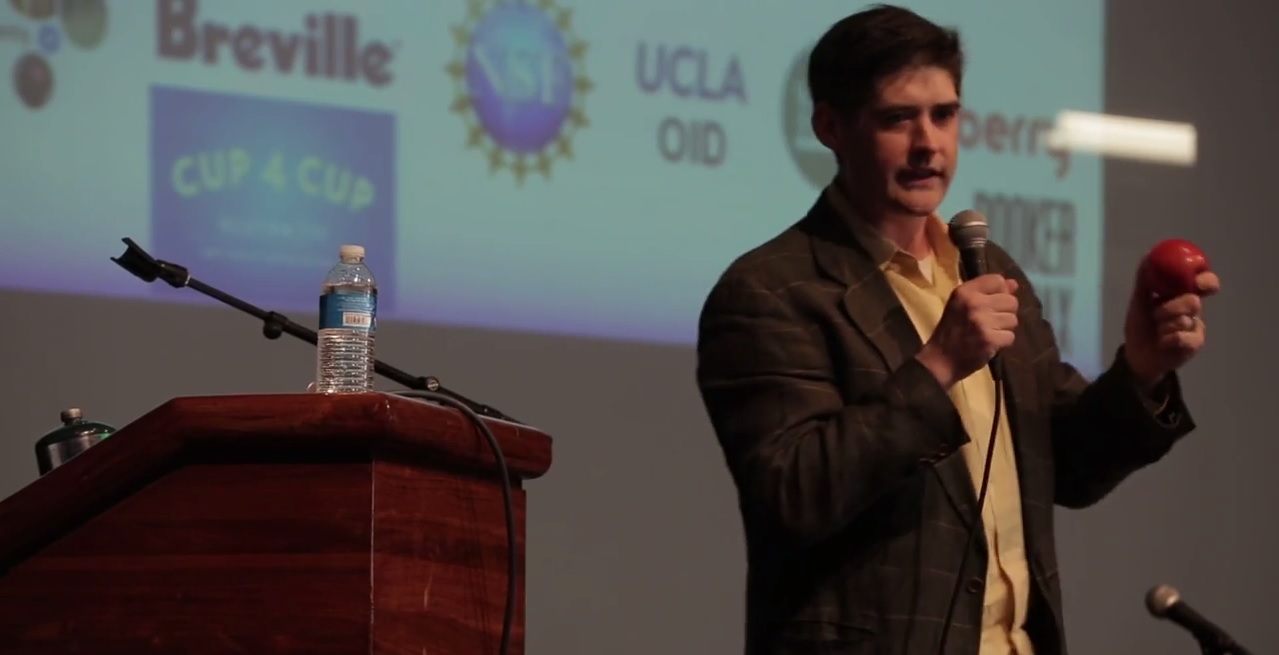Harnessing Creativity
Harnessing Creativity
Featuring Dave Arnold & Chef Lena Kwak
June 1, 2014
As part of our 2014 public lecture series, Dave Arnold (of Booker and Dax, the Museum of Food and Drink, and the Cooking Issues Podcast) discussed his latest culinary innovations and the role of creativity in food. He was joined by Chef Lena Kwak (of Cup4Cup) who shared her process of invention, research, and discovery in the kitchen.
Check out the highlights or watch the full lecture below.
Lena Kwak on the creation of Cup4Cup and the power of mistakes
“It was working with food that helped me get over the fear of imperfection. Making mistakes in the kitchen played a significant role in my recipe development. I found myself more daring [and] willing to experiment with different flavors and texture combinations…Take Cup4Cup. The original formula took me about year-and-a-half to finalize. A year-and-a-half is a very long time to make a lot of mistakes…. All the knowledge I gained through those mistakes has actually left me with [another] set of different products.”
Her biggest words of advice: “Go out there, makes mistakes—because you never know what those mistakes will lead you to.”
Dave Arnold on how to be creative in the kitchen
“What is important isn’t that you use a piece of technology or that you use a new piece of equipment. Really it’s that you try to understand what is going on while you’re cooking…. It’s to become unhinged in a very analytical way… that’s the whole premise of creativity.”
Dave Arnold uses gymnemic acid to flip our understanding of sweet foods
Dave Arnold gives the audience gymnemic acid to block their sweet taste receptors and then challenges them to try sweet treats like sugar, honey, strawberries and chocolate. He explains that erasing sweetness enables the taster to examine how other factors like texture and acidity influences the experience of sweet foods.
Arnold says this analytical approach to food is important: “Even if you have no idea why something happens, if you have a hypothesis … and you keep adapting and recording what your results are… you can get to the right place.”
Watch the entire lecture:


